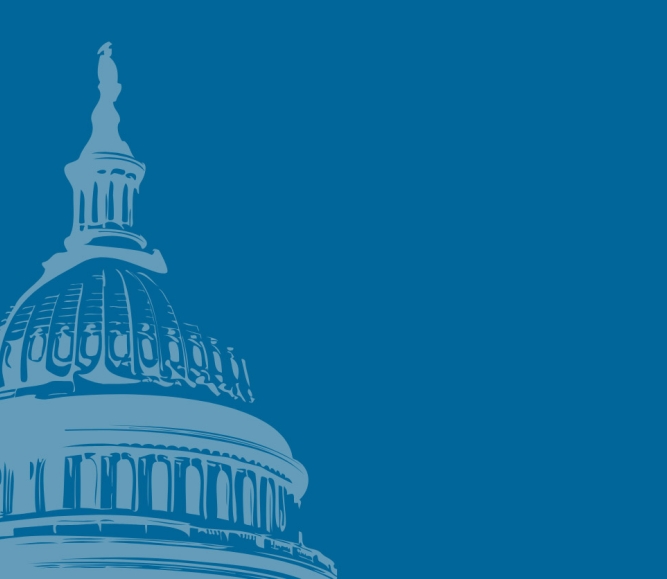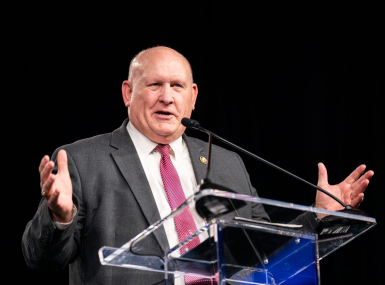Congress introduces bipartisan legislation to strengthen rural health care access and funding
Author

Blaire Bryant

Naomi Freel
Upcoming Events
Related News

Key Takeaways
August 5, 2025 Update: On July 30, the U.S. Senate Committee on Health, Employment, Labor and Pensions (HELP) unanimously passed the Improving Care in Rural America Reauthorization Act of 2025 (S. 2301). The bill now awaits consideration by the full U.S. Senate. A companion bill in the U.S. House of Representatives (H.R. 2493) remains under review by the Energy and Commerce Committee.
If passed, this legislation would reauthorize three key programs under the Public Health Service Act through FY2030:
- Rural Healthcare Services Grants
- Rural Health Network Grants
- Small Healthcare Provider Quality Improvement Grants
These programs support counties in providing care delivery, coordination and quality improvement efforts for underserved rural communities across the country.
Rural communities face unique health care challenges, from provider shortages to funding disparities. To address these concerns, the U.S. Senate recently introduced two bipartisan bills aimed at improving rural health care access and funding: the Rural Health Focus Act (S.403) and the Fair Funding for Rural Hospitals Act (S. __). If enacted, these bills would enhance coordination of rural health programs and ensure fairer distribution of federal funding for rural hospitals.
The Rural Health Focus Act
The Rural Health Focus Act would formally authorize the CDC Office of Rural Health, ensuring consistent funding and improved coordination of rural health initiatives. Originally established through the 2023 Consolidated Appropriations Act (P.L. 117-328), the office received $5 million in FY 2024, however statutory authorization would enhance its stability.
The bill directs the CDC to appoint a director to oversee rural health efforts, coordinate best practices, address health disparities and administer grants to improve care delivery. By solidifying this office, the legislation aims to strengthen rural health infrastructure and expand access to essential public health services.
The Fair Funding for Rural Hospitals Act
The Fair Funding for Rural Hospitals Act aims to modernize outdated disproportionate share hospital (DSH) payments, which support rural hospitals serving Medicaid and uninsured patients. The bill would set a $20 million per-state funding floor, adjust funding with a low inflation rate after five years and increase payments for hospitals in select states. By establishing a nationwide minimum, it seeks to provide more equitable financial support to struggling rural hospitals facing low patient volumes and high uncompensated care rates.
Impact on Counties
Counties are essential providers of health care in rural communities, operating hospitals, public health departments and behavioral health programs. Congressional policy proposed in the Rural Health Focus Act and Fair Funding for Rural Hospitals Act would strengthen local health systems by improving coordination, expanding funding opportunities and ensuring more predictable financial support for county-owned hospitals. These bills align with county policy priorities for increasing access to health services in rural communities, which include stabilizing and preventing rural hospital closures, address workforce shortages and streamlining federal resources that help sustain rural health systems.
To further these efforts, NACo recently released a new rural health policy brief urging Congress to increase funding and support for local rural health initiatives that expand access to care and strengthen the vitality of rural communities. The brief highlights key rural health challenges and offers recommendations to our federal partners on how to support rural counties in administering health services.
Resource
Enhance Funding for Local Rural Health Programs

Related News

HHS Secretary Kennedy touts fixes for obesity, chronic illness, mental health issues
Counties can help improve health outcomes by prioritizing prevention over treatment, Robert F. Kennedy Jr., secretary of the U.S. Department of Health and Human Services told NACo Legislative Conference attendees.

House Agriculture Committee chairman targets Easter farm bill passage
House Agriculture Chairman G.T. Thompson (R-Pa.): “Let’s face it — the 2018 policy was really great for 2018, but it’s no match for the challenges of 2026.”

Drug tracking software helps counties identify trends, save lives
Florida counties are using an artificial intelligence tool called Drug TRAC to track and report drug trends, with the aim of providing quicker outreach and saving lives.